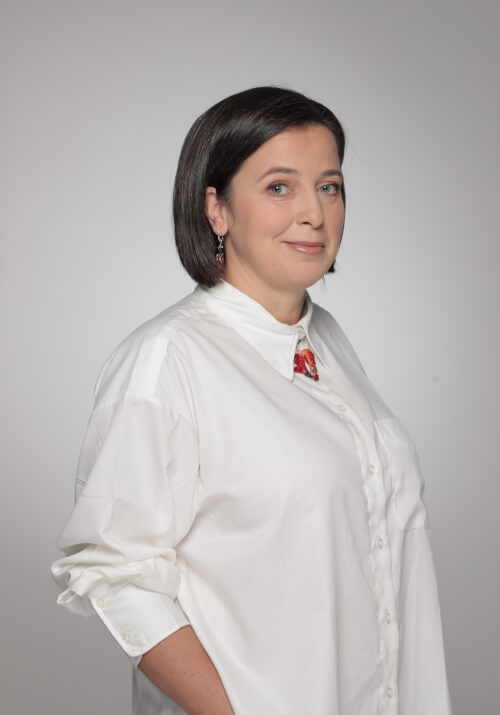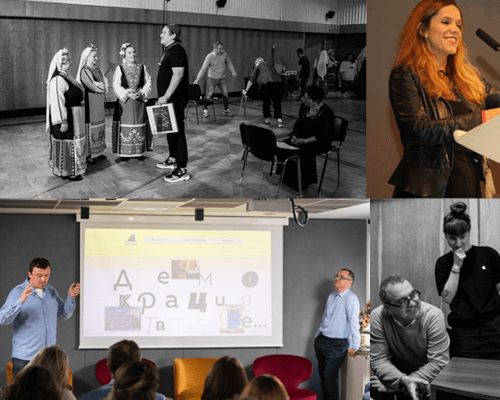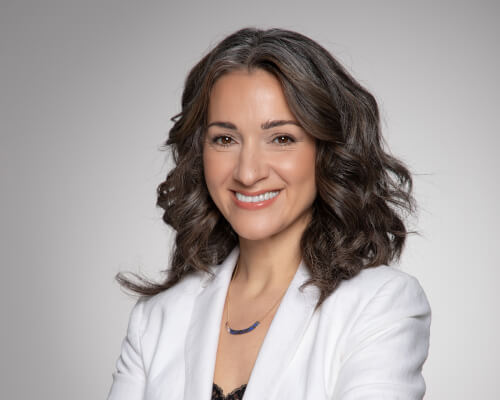
We partnered with Bulgarian lifestyle magazine EVA to present female leaders from the Bulgarian nonprofit and public sectors. The result was EVA’s Optimistic Issue: 15 Stories of Success. This is one of the featured stories, republished with permission.
Text: Lilia Ilieva
Photography: Kostadin Krastev-Koko
Iva Lazarova is the executive director of the Institute for Public Environment Development (IPED), an organization dedicated to creating and implementing accountability mechanisms for public institutions. She is one of those tireless individuals who pour their heart, energy, and intellect into ensuring a healthier, better regulated, and more informed society, especially during elections. Iva has also worked with non-governmental organizations in the US, where she explored the use of digital tools to combat corruption and promote good governance. In 2019, she received a scholarship from the German Marshall Fund of the US.
Iva, you’ve been with the Institute for Public Environment Development for 16 years. How did your journey with IPED begin?
It began before I even graduated from university, for which I am immensely grateful. Sofia, my birthplace, held a special place in my heart, but I was unaware of the challenges the city faced, along with other places in Bulgaria, how similar their root causes were and how different the approaches to resolving them. I hadn’t fully grasped the extent of continuous learning, research, reading, and meticulousness required to formulate acceptable recommendations for addressing community challenges.
My initial tasks included studying laws governing capital cities like Berlin, London, Belgrade, and Kiev. I also participated in my first independent election monitoring in Kazanlak to understand the origin of local governance and on-the-ground election campaign monitoring. One of my primary tasks involved independently evaluating Bulgaria’s Information System for Management and Monitoring of EU Funds in Bulgaria (ISUN).
What inspires you in your work, and what doesn’t let you rest?
I find inspiration in the potential for significant societal progress in Bulgaria. My colleagues and I share the belief that achieving responsible institutions serving citizens’ interests necessitates fair and transparent elections, fostering societal confidence. This entails ensuring voters can freely cast their votes, are aware of voting regulations, trust their votes will be accurately counted, and have readily accessible information about the electoral process. Only then can elected officials be truly accountable to all citizens and make decisions enhancing our daily lives.
How many hours do you sleep during elections? And what do you dream about?
Electoral campaigns don’t let the IPED team sleep much. We are extremely busy during election months, often staying in the office until late, then working from home in the evening. It’s worth it, though. We try to clarify election rules and find optimal solutions. Our efforts have yielded significant changes, advocating for reforms such as the adoption of the Electoral Code, enabling preferential voting, enhancing the transparency of party financing, and more. Progress on electoral issues can be slow and circuitous. For example, an improvement in the rules can be followed by a step backward. These are normal developments in a democracy, and we need to affirm our commitment to democratic processes daily.
A recurring dream involves ballot protocols from the end of election day, and the nightmares are related to administrative challenges in completing those protocols.
How does civil society in Bulgaria today differ from when you began your work at IPED?
There’s significantly more transparency in institutional operations now. A decade ago, the Central Election Commission, responsible for organizing the election process, didn’t disclose any information about its work. Today, it publishes meeting minutes and broadcasts discussions live. Significant progress has been made, though there’s still room for improvement.
More efforts are also necessary so that both citizens and activists become more engaged, holding institutions accountable for their actions and demanding more of government. Citizen pressure and activism are pivotal for driving positive reforms.
Which campaigns of the Institute for Public Environment Development would you consider particularly successful?
IPED has notably contributed to implementing preferential voting in elections, facilitating direct relationships between voters and elected officials. In the last local elections, 63% of citizens voted preferentially.
We developed the I Vote platform, which gathers crucial information about different voter groups, explains voter rights and obligations, and announces the rules that sectional election commissions must adhere to. During campaigns, we receive numerous inquiries from citizens regarding voting methods and documents, polling station locations, the functions of election commissions, and more.
Additionally, besides analyzing the overall electoral process, we aim to monitor various public policies. We publish these analyses on our other platform, Open Parliament.
What does your typical day look like?
The most commonly heard phrase at the office is “Let’s go,” indicating no tolerance for delay, reluctance, or excuses like “This can’t happen now.” At work, we exchange jokes and banter about the current state of public affairs, typically over something unhealthy (loaded with sugar) and without a drop of coffee. And regardless of how old-fashioned it may sound, we listen to rock music in the company of beloved people, all staunch activists like we are.
What do you enjoy doing in your spare time?
I enjoy playing, reading, studying, and spending time with my child. Taking 20,000 steps a day is a routine for me. I always have a wish list for the next book fair. On weekends, I like bothering colleagues (and close friends) about work or, even better, venturing on an out-of-town “excursion” together (so I can continue bothering them in person).
What was the most valuable lesson you learned while working with NGOs in the US, and how does it impact your work at the institute?
In the US, institutions operate with a high level of transparency and often collaborate with NGOs to leverage their expertise and experience. We endeavor to replicate this approach to enhance rule adherence in our country. Collaborating with citizens, activists, and institutions is crucial for driving reforms.
Another valuable lesson is the importance of shared values and a unified vision within an organization. At IPED, we strive for this cohesion, which has been integral to our success. Regular discussions about our organizational development goals ensure that each team member contributes effectively.
What impressed you most during your fellowship with the German Marshall Fund of the US?
Established in 1982, the German Marshall Fund aims to train European and American professionals to enhance transatlantic relations. Each year, it selects 75 candidates from various sectors, including business, government, and civil society. Being selected as an NGO representative for their flagship leadership development program was truly remarkable.
The experience was invaluable. I had the opportunity to engage with professionals in influential positions in the public and business spheres as well as individuals dedicated to civic activism and creating policies for inclusive communities where diversity is valued, and citizens are respected and participate in decision-making processes affecting their lives.
How did IPED’s partnership with the America for Bulgaria Foundation commence, and how did the Foundation help you achieve your goals?
The America for Bulgaria Foundation believed in our mission and has supported us for a decade, recognizing the crucial role of democratic elections in the functioning of elected institutions. Their continuous support has enabled us to analyze and propose solutions for improving the electoral process and democratic functioning of institutions in a systematic manner.
What aspects of Bulgarian society offer reasons for optimism?
The volunteers at IPED are a testament to the presence of individuals in our country willing to contribute their time and efforts to democracy. This is a clear indication that a strong civil society is emerging, which is essential for driving positive changes in how institutions operate. Additionally, protests can mobilize civic energy for the state’s positive development.
Bulgaria’s many world-class artists and cultural figures, such as Raina Kabaivanska, our chess players, student teams in physics and mathematics, and young scientists in various fields, also inspire optimism.
What are you thankful for in 2023, and what are your expectations for 2024?
I’m grateful for the health of my loved ones, the enduring support of friends in achieving shared goals, favorable weather, and the award Georgi Gospodinov received.
In 2024, we have European Parliament elections and a substantial workload ahead. My colleagues from IPED and I are always full of plans and ideas, and we strive to implement at least a part of them.
My heartfelt hope for 2024 is that we may live in a more peaceful world, as too many regions currently suffer from a complete absence of peace.

